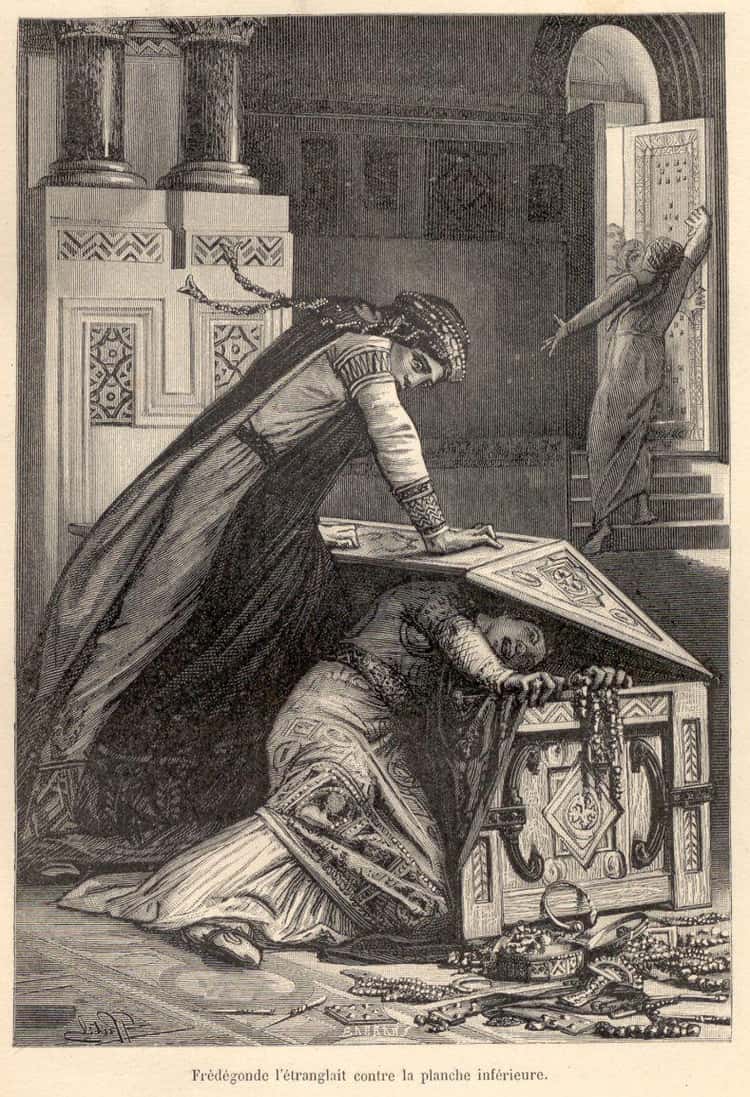Throughout history, several queens have earned reputations as formidable, dangerous, and sometimes ruthless leaders. These women wielded significant power, often navigating treacherous political landscapes with cunning and determination. Here are some of the most dangerous queens in history, known for their influence, ambition, and sometimes, their lethal actions.
1. Cleopatra VII (69-30 BC)
Country: Egypt

Reign: 51-30 BC
Cleopatra VII is perhaps one of the most famous queens in history. The last active ruler of the Ptolemaic Kingdom of Egypt, Cleopatra was known for her intelligence, political acumen, and romantic liaisons with powerful Roman figures like Julius Caesar and Mark Antony. Her ambition to maintain Egypt’s independence from Rome drove her to form strategic alliances and engage in military conflicts. Ultimately, her defeat and subsequent suicide marked the end of Egypt’s dynastic rule and its absorption into the Roman Empire.
2. Empress Wu Zetian (624-705 AD)
Country: China

Reign: 690-705 AD (as Empress Regnant)
Wu Zetian was the only female emperor in Chinese history, ruling during the Tang Dynasty. Her rise to power was marked by ruthlessness; she eliminated rivals, including members of her family, to secure her position. As an empress, she was known for her effective but often brutal methods of maintaining control. Despite her controversial reign, she was also recognized for her contributions to the expansion and consolidation of the Chinese empire, as well as her support for Buddhism.
3. Catherine de’ Medici (1519-1589)
Country: France

Reign: 1547-1559 (as Queen Consort); 1559-1589 (as Queen Mother and Regent)
Catherine de’ Medici was Queen Consort to King Henry II of France and later served as regent for her sons. She wielded significant influence during the turbulent period of the French Wars of Religion. Catherine is often associated with the St. Bartholomew’s Day Massacre in 1572, where thousands of Huguenots (French Protestants) were killed. Her political maneuvers and willingness to employ ruthless tactics earned her a fearsome reputation.
4. Mary I of England (1516-1558)
Country: England

Reign: 1553-1558
Mary I, also known as “Bloody Mary,” was the first queen regnant of England. Her efforts to restore Roman Catholicism in England led to the persecution and execution of numerous Protestants, earning her the notorious nickname. Despite her short reign, her actions left a lasting impact on England’s religious landscape, and her legacy remains controversial.
5. Queen Ranavalona I of Madagascar (1778-1861)
Country: Madagascar

Reign: 1828-1861
Ranavalona I, also known as “Ranavalona the Cruel,” ruled Madagascar with an iron fist. Her reign was marked by extreme isolationism, military campaigns, and brutal suppression of dissent. She fiercely resisted European influence and Christianity, leading to the persecution of converts and foreigners. Her draconian policies resulted in significant loss of life and left a legacy of fear and respect.
6. Queen Isabella I of Castile (1451-1504)
Country: Spain

Reign: 1474-1504
Isabella I of Castile, alongside her husband Ferdinand II of Aragon, played a crucial role in the unification of Spain. She was a driving force behind the Spanish Inquisition, which sought to maintain Catholic orthodoxy in her kingdoms through the persecution of Jews, Muslims, and other non-Catholics. Her reign also saw the funding of Christopher Columbus’s voyages, leading to the Spanish colonization of the Americas.
Conclusion
The queens listed above are remembered for their significant influence and, in many cases, their ruthless tactics. Their actions, whether motivated by political strategy, personal ambition, or religious fervor, have left indelible marks on history. These women navigated the complexities of power and authority in ways that continue to fascinate and provoke debate among historians and the public alike.
